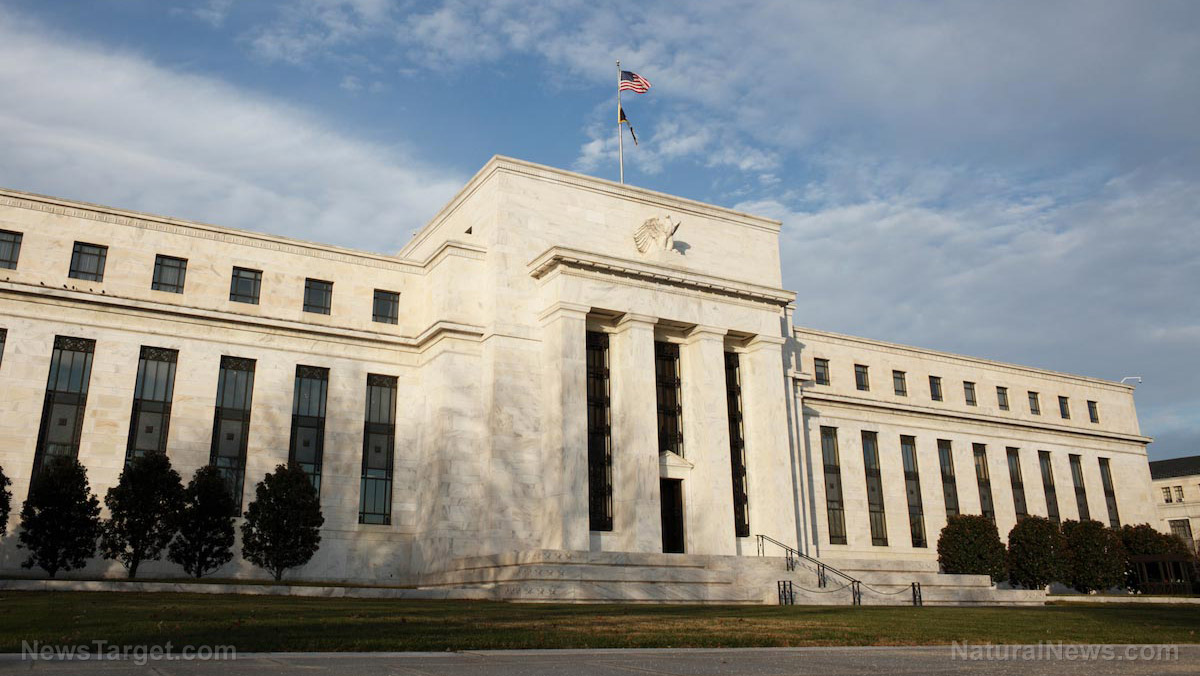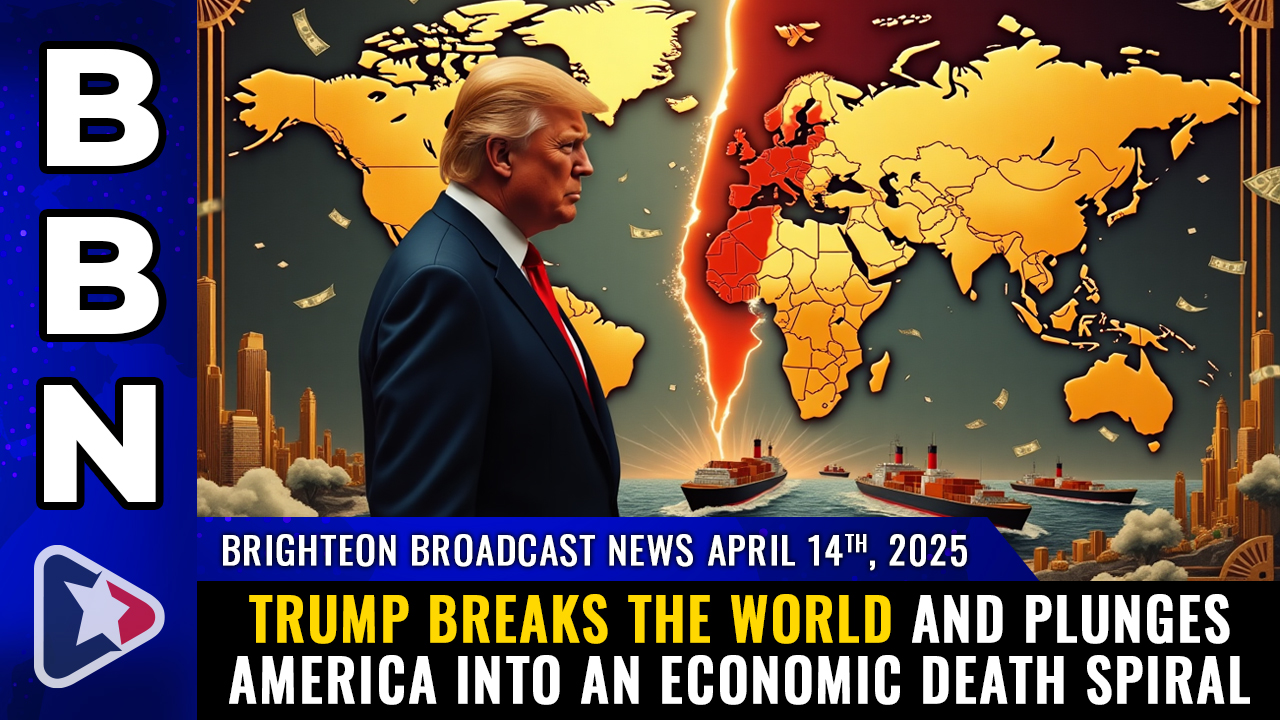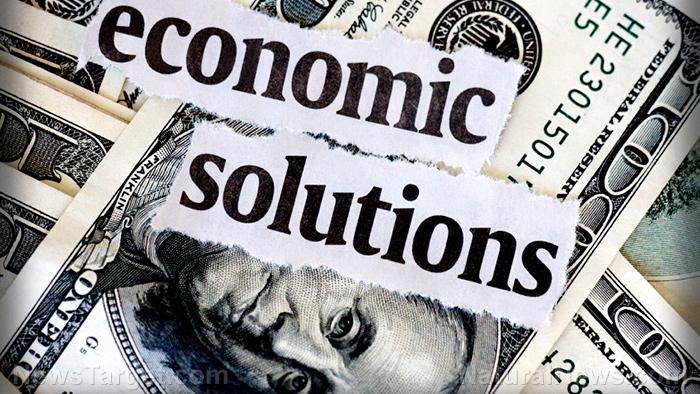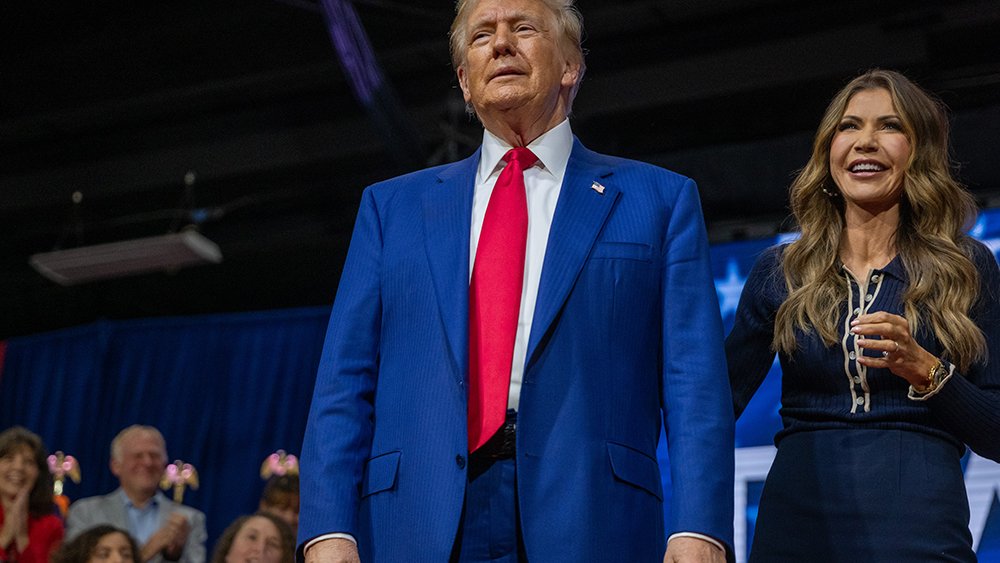Amazon and Walmart navigate tariff turmoil: Retail giants adjust strategies amid trade war
04/11/2025 / By Willow Tohi

- Amazon and Walmart are taking drastic measures due to U.S.-China trade tensions, with Amazon canceling orders for products like beach chairs and scooters from China, and Walmart retracting its first-quarter income guidance.
- Amazon abruptly halted orders from Chinese and Asian suppliers, leaving vendors with unsold inventory. Vendors report this as unprecedented, forcing them to seek alternative buyers or accept lower margins.
- Walmart revises financial guidance amid tariff pressures, emphasizing price flexibility to protect budget-conscious shoppers. The company claims long-term resilience but acknowledges short-term challenges.
- With tariffs exceeding 100% on some Chinese goods, retailers face rising import costs, prompting supply chain reevaluations. Industry-wide price hikes and profit margin squeezes are expected.
- Past U.S.-China trade wars disrupted global growth and supply chains. The current situation could escalate further, benefiting domestic manufacturers but likely increasing costs for consumers and businesses.
In a significant move reflecting the escalating trade tensions between the United States and China, retail giants Amazon and Walmart have taken drastic steps to mitigate the impact of President Donald Trump’s sweeping tariffs. Amazon has canceled orders for a range of products from China and other Asian countries, while Walmart has scrapped its first-quarter operating income guidance. These actions highlight the far-reaching consequences of the trade war on global supply chains and consumer prices.
Amazon’s order cancellations
Amazon, the world’s largest online retailer, has abruptly canceled orders for beach chairs, scooters, air conditioners and other merchandise sourced from China and other Asian countries. According to a document reviewed by Bloomberg and sources familiar with the matter, these cancellations came without warning, leading vendors to suspect they were a direct response to the tariffs announced by President Trump on April 2.
One vendor, who has been selling beach chairs to Amazon for over a decade, received an email instructing them not to ship a $500,000 wholesale order that had already been manufactured. The vendor, speaking on condition of anonymity due to fear of retaliation, stated, “This is unprecedented. Amazon has never canceled an order like this before, and now I’m left holding the bag.”
Scott Miller, a former Amazon vendor manager and current e-commerce consultant, confirmed that several of his clients have also experienced similar cancellations. “Amazon holds all the cards,” Miller said. “Vendors are now left with the difficult choice of either selling this inventory at lower margins in other countries or trying to find new buyers.”
Walmart’s strategic shift
Meanwhile, Walmart, the world’s largest brick-and-mortar retailer, has announced that it is retracting its first-quarter operating income guidance. In a press release, the company cited tariffs and mounting macroeconomic headwinds as key factors. John David Rainey, Walmart’s executive vice president and chief financial officer, stated, “We have fundamentally changed our business model through years of thoughtful, strategic investments and now have a financial model that yields much higher returns.”
Walmart’s decision to maintain flexibility in pricing as tariffs are implemented underscores its commitment to keeping prices low for budget-savvy consumers. Rainey added, “History tells us that when we lean into these periods of uncertainty, Walmart emerges on the other side with greater share and a stronger business.”
The broader impact on the retail sector
The actions taken by Amazon and Walmart are indicative of the broader challenges facing the retail sector. With an effective tariff rate on Chinese goods exceeding 100%, the cost of importing products has skyrocketed. This has forced retailers to reassess their supply chain strategies and consider alternative sourcing options.
Bloomberg data shows that both Amazon and Walmart rely heavily on suppliers based in China and other Asian countries. The cancellation of orders and the retraction of financial guidance are early signs of the trade war’s impact on global trade. As tariffs continue to rise, the ripple effects are likely to be felt across the entire retail industry, potentially leading to higher prices for consumers and reduced profit margins for retailers.
Historical context and future implications
The current trade tensions between the U.S. and China are not unprecedented, but the scale and scope of the tariffs imposed by President Trump are. Historically, trade wars have often led to economic disruptions, including increased costs for businesses and consumers, reduced trade volumes and geopolitical tensions. The last major trade war between the U.S. and China, which began in 2018, resulted in significant economic and political consequences, including a slowdown in global economic growth and a shift in supply chain dynamics.
The current situation is likely to have similar, if not more severe, implications. Retailers are already feeling the pinch, and the impact is expected to trickle down to consumers in the form of higher prices. For those sourcing domestically, the situation may present an opportunity, as domestic manufacturers could see increased demand for their products.
Conclusion
As the trade war between the U.S. and China intensifies, the actions of retail giants like Amazon and Walmart serve as a barometer for the broader economic landscape. The cancellation of orders and the retraction of financial guidance highlight the immediate and significant impact of tariffs on global supply chains. While these companies are taking steps to mitigate the effects, the long-term consequences for the retail sector and consumers remain to be seen. As the trade war continues, the resilience and adaptability of these companies will be crucial in navigating the uncertain waters ahead.
Sources include:
Submit a correction >>
Tagged Under:
Amazon, China, debt collapse, economy, global trade, Globalism, retail sector, supply chain, tariffs, trade wars, Walmart
This article may contain statements that reflect the opinion of the author
RECENT NEWS & ARTICLES
COPYRIGHT © 2017 RISK NEWS




















